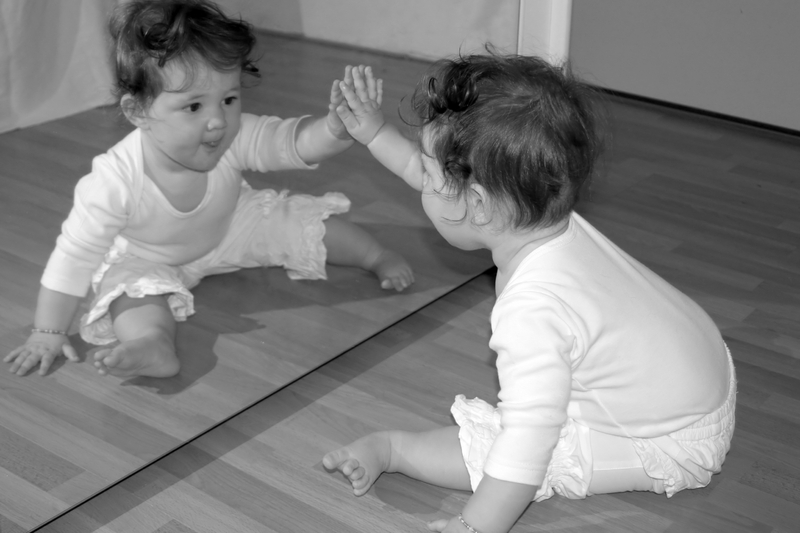
According to Lacan, an infant cannot create an identity for themselves at birth. The child’s image resides in the mother, since the child has not seen itself. In addition to this, the child’s only concern is the need for food and comfort. Therefore, the caregiver becomes the ideal “self” for the child. What is essential for development of the child’s identity is the need for eventual separation. Separation, as defined by Lacan, is the creation of the self by distancing oneself from the caregiver. Since birth, the child creates a bond with the caregiver—and will continue to depend on the caregiver if separation is not achieved.
Lacan goes on to state that there are three basic principles of the mind: the real, the imaginary, and the symbolic. The symbolic is the formation of the word “I” and the creation of the self. The real is the creation of the self-sufficient self, where there is no need for the caregiver, because the self can fulfill the needs. The imaginary is experienced during what Lacan describes is the Mirror Stage. During infancy, when a child comes into contact with a mirror they create a misrecognized image of itself. The subconscious creates the “I” identity with the image in the mirror. This, as Lacan describes, is a false understanding of the self. And, although the ego is satisfied with the image of the self, the overall consciousness cannot create a relationship with the imaginary image of the self. As a society, we insist that children should play with toys that have mirrors in them so that they can begin to recognize themselves. Yet, as Lacan explains, the recognition of the self is not reliant on the image but rather the subconscious ability to fulfill the needs of the id.
No comments:
Post a Comment